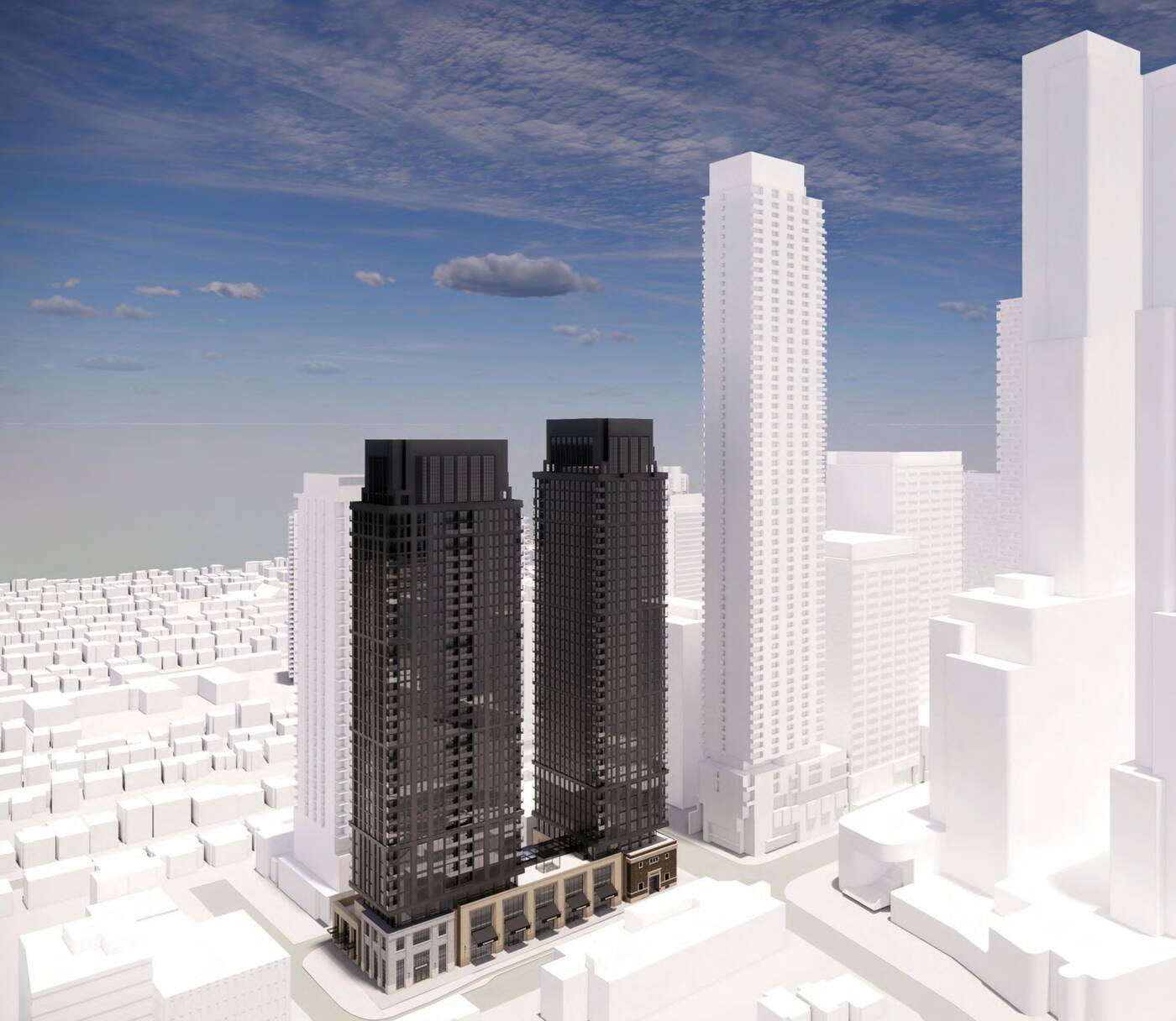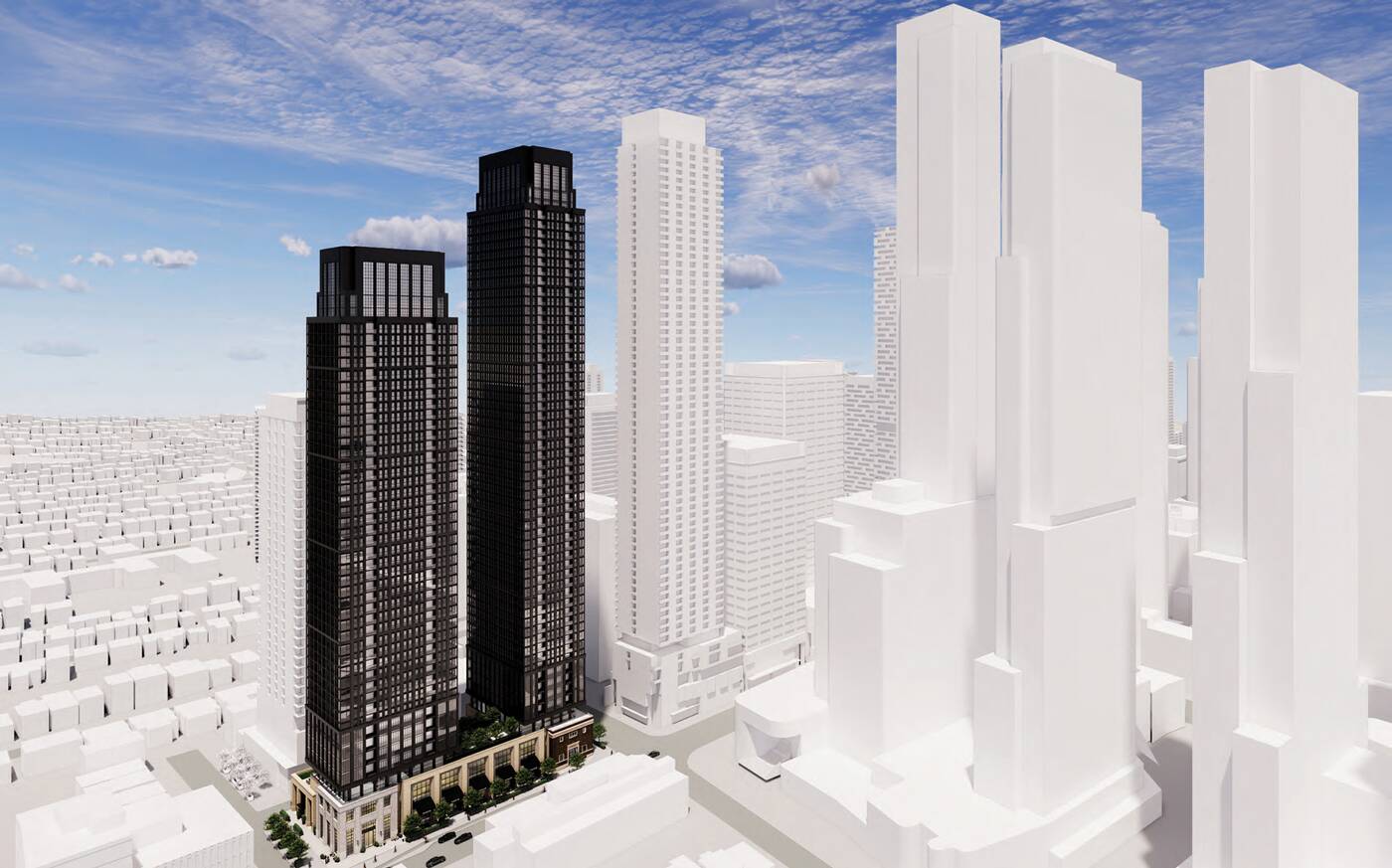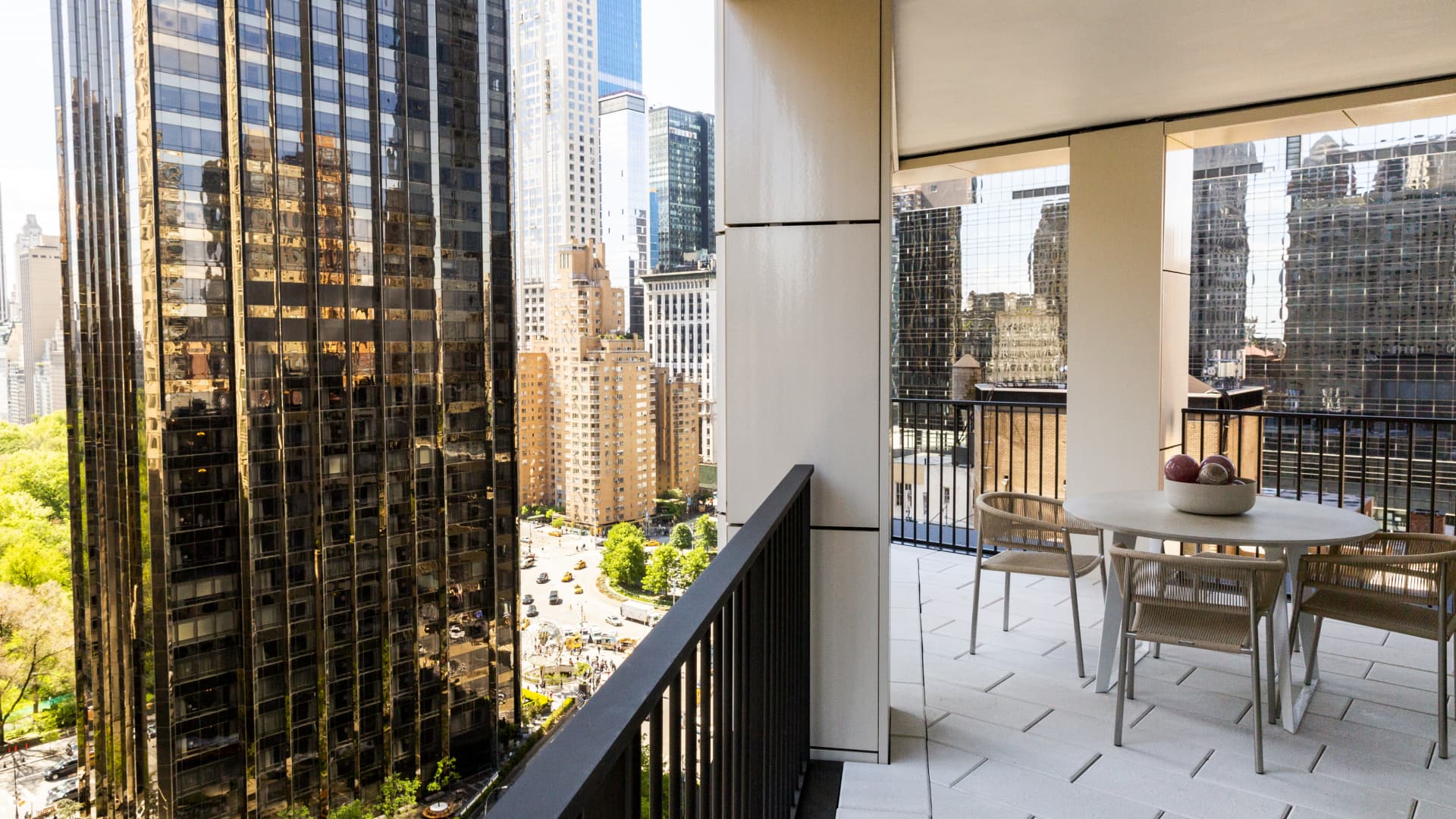Real eState
GRESB validates real estate's ESG credentials – REMI Network – Real Estate Management Industry Network


Intensifying scrutiny of commercial real estate’s ESG (environmental, social, governance) credentials can be seen in the 58 per cent increase in Canadian uptake of the GRESB assessment and benchmark since 2019. This year, 41 private and listed portfolios undertook the rigorous reporting exercise — which tracks ESG intent, implementation and outcomes in 14 different categories and through more than 60 indicators — collectively pushing Canada’s score above the 73-point global average and once again surpassing the average collective score of their peers in the United States.
That’s particularly notable given the influx of 15 newcomers since pre-pandemic days. Dan Winters, GRESB head for the Americas, who summarized the 2021 results during an online presentation earlier this month, emphasized that scores typically improve as participants gain familiarity with the program, use it to identify where work is needed and build on what they’ve learned.
“It is a framework for best practices. Organizations often start in the teens (for scores). What’s bad is if they stay in the teens. What’s good is if those scores climb to the 30s and then the 50s and then the 60s,” he said. “All of the leaders in the 5-star range started off below 60, without a doubt.”
Heartening for GRESB administrators, the average score has recovered from last year’s downward dip following a realignment of the scoring system to place greater emphasis on performance outcomes such as energy-use and water-use intensity. Further adjustments are promised to respond to emerging priorities and/or harness data collection advancements to delve deeper and reach farther. For example, following a three-year pilot module, metrics related to climate change resilience have been refined and integrated into the assessment
“The benchmark will continue to evolve,” Winters advised. “It’s not moving the goal posts as much as it’s making progress and having the leaders pull the market along with them.”
This year, scores ranged from a high of 99.6 (out of 100) to a low of 8.8 across 1,520 participating entities. The top 20 per cent — denoted with a 5-star rating — achieved an average score of 90.65. At the 1-star level, the average score was 47.9, while the bottom quintile’s top score was 61.8.
Canadian participants account for less than 3 per cent of the entire GRESB database, but make up nearly 5 per cent of the 5-star cohort for 2021. That includes BentallGreenOak, Dream Unlimited Corp., GWL Realty Advisors and QuadReal Property Group each earning 5-star status for two separate property funds, along with single 5-star results for Cadillac Fairview Corporation, Crown Realty Partners, Ivanhoé Cambridge, KingSett Capital, LaSalle Investment Management, Menkes and RioCan REIT.
Six Canadian entities placed in the 4-star level, which posted an average score of 82.9. That includes two of Manulife Investment Management’s property funds, as well as Alberta Investment Management Corporation (AIMCo), Allied Properties REIT, First Capital REIT and Triovest Realty Advisors. Winters additionally revealed that three more Canadian entities were within one point of cracking the 4-star quintile, meaning that they achieved scores no lower than 78.4.
Globally, GRESB, which reorganized into a benefit corporation (B-corp) last year, now boasts more than 140 subscribing institutional investor members with full access to the data, and has registered a 25 per cent gain in reporting entities in each of the last two years. As of 2021, the GRESB data base covers more than 117,000 assets spread across 66 countries and collectively valued at USD $5.7 trillion.
Michael Brooks, chief executive officer of REALPAC, GRESB’s partner in Canada, links the circular momentum of GRESB’s investor and reporting bases to a confluence of financial, social and regulatory forces, environmental cataclysms and emerging priorities for equity, diversity and well-being within corporate culture. Beyond the already discernible synergies between sustainable performance and robust returns, institutional investors increasingly have commitments to achieve GHG-reduction targets and/or align with the UN sustainable development goals and they require standardized, verifiable evidence to support that.
Lenders are increasingly focused on physical and transitional climate risks and, in the European Union, they’re grappling with the Sustainable Finance Disclosure Regulation (SFDR). It’s believed to underlie much of the recent new GRESB participation in that region — where 784 real estate entities now bring 45,236 assets collectively valued at USD $1.35 trillion to the database — and Brooks predicts similar regulatory directives will be invoked in North America.
“ESG and sustainability drivers continue to grow, converge and accelerate faster than ever,” he observed. “With so much going on, it’s so important to have a program like GRESB where commercial real estate owners and participants can work on all of their ESG activities in a structured framework, and see their progress annually and see how they compare to their peers. It’s a good competition and it’s a benchmark.”
Real eState
Proposed Toronto condo complex seeks gargantuan height increase – blogTO
A large condo complex proposed in the increasingly condo-packed Yonge and Eglinton neighbourhood is planning to go much taller.
Developer Madison Group has filed plans to increase the height of its planned two-tower condo complex at 50 Eglinton Ave. W., from previously approved heights of 33 and 35 storeys, respectively, to a significantly taller plan calling for 46- and 58-storey towers.
The dual skyscrapers will rise from a podium featuring restored facades of a heritage-designed Toronto Hydro substation building.
As of 2024, plans for high-rise development at this site have been evolving for over a dozen years, first as two separate projects before being folded into one. The height sought for this site has almost doubled in the years since first proposed, and it shouldn’t come as a huge surprise for anyone tracking development in this part of the city.


Early 2024 design for 50 Eglinton West before current height increase request.
Building on a 2023 approval for towers of 33 and 35 storeys, the developer filed an updated application at the start of 2024 seeking a slight height increase to 35 and 37 storeys.
Only a few months later, the latest update submitted with city planners this April reflects the changing landscape in the surrounding midtown area, where tower heights and density allotments have skyrocketed in recent years in advance of the Eglinton Crosstown LRT.


April 2024 vision for 50 Eglinton Avenue West.
The current design from Audax Architecture is a vertical extrusion of the previous plan that maintains all details, including stepbacks and material details.
That updated design introduced in January responds to an agreement that allows the developer to incorporate office space replacement required under the neighbourhood plan to a nearby development site at 90-110 Eglinton East.
According to a letter filed with the City, “As a result of the removal of the on-site office replacement, which altered the design and size of the podium, and to improve the heritage preservation approach to the former Toronto Hydro substation building… Madison engaged Audax Architecture and Turner Fleischer Architects to reimagine the architectural style and expression of the project.”
A total of 1,206 condominium units are proposed in the current version of the plan, with over 98 per cent of the total floor space allocated to residential space. Of that total, 553 units are planned for the shorter west tower, with 653 in the taller east tower.
A sizeable retail component of over 1,300 square metres would animate the base of the complex at Duplex and Eglinton.
The complex would be served by a three-level underground parking garage housing 216 spots for residents and visitors. Most residents would be expected to make use of the Eglinton Line 1 and future Line 5 stations across the street to the southeast for longer-haul commutes.
Audax Architecture/Turner Fleischer Architects
Real eState
Luxury real estate prices just hit an all-time record – CNBC


Real estate is increasingly a tale of two markets — a luxury sector that is booming, and the rest of the market that continues to struggle with higher rates and low inventory.
Overall real estate sales fell 4% nationwide in the first quarter, according to Redfin. Yet, luxury real estate sales increased more than 2%, posting their best year-over-year gains in three years, according to Redfin.
Real estate experts and brokers chalk up the divergence to interest rates and supply. With mortgage rates now above 7% for a 30-year fixed loan, most homebuyers are finding prices out of reach. Affluent and wealthy buyers, however, are snapping up homes with cash, making them less vulnerable to high rates.
Nearly half of all luxury homes, defined by Redfin as homes in the top 5% of their metro area by value, were bought with all cash in the quarter, according to Redfin. That is the highest share in at least a decade. In Manhattan, all-cash deals hit a record 68% of all sales, according to Miller Samuel.
The flood of cash is also driving up prices at the top. Median luxury-home prices soared nearly 9% in the quarter, roughly twice the increase seen in the broader market, according to Redfin. The median price of luxury homes hit an all-time record of $1,225,000 during the period.
“People with the means to buy high-end homes are jumping in now because they feel confident prices will continue to rise,” said David Palmer, a Redfin agent in Seattle, where the median-priced luxury home sells for $2.7 million. “They’re ready to buy with more optimism and less apprehension.”
The luxury market is also benefiting from more supply of homes for sale. Since wealthy sellers are more likely to buy with cash, they are not as worried about trading out of a low-rate mortgage like most homeowners. That has freed up the upper end of listings, creating more inventory and driving more sales.
The number of luxury homes for sale jumped 13% in the first quarter, compared to a 3% decline for the rest of the housing market, according to Redfin. While overall luxury inventory remains “well below” pre-pandemic levels, the number of luxury listings that came online during the first quarter jumped 19%, the report said.
“Prices continue to increase for high-end homes, so homeowners feel it’s a good time to cash in on their equity,” Palmer said.
Still, not all luxury markets are booming, and the strongest price growth is in areas not typically known for luxury homes. According to Redfin, the market with the fastest luxury price growth was Providence, Rhode Island, with prices up 16%, followed by New Brunswick, New Jersey, where prices were up 15%. New York City saw the biggest price decline, down 10%.
When it comes to overall sales of luxury homes, Seattle posted the strongest growth of any metro area, with sales up 37%. Austin, Texas ranked second with sales up 26%, followed by San Francisco with a 24% increase.
Luxury homes sold the fastest in Seattle, with a median days on the market of nine days, followed by Oakland, California, and San Jose, California.
Subscribe to CNBC’s Inside Wealth newsletter with Robert Frank.
Real eState
New condo market in Toronto hits 15-year low: 'It is dead' – The Globe and Mail


Condo construction is shown in Ajax, Ont., on Nov. 30, 2023.Christopher Katsarov/The Canadian Press
New condo sales in the Toronto region dropped to their lowest level since the 2009 financial crisis, with investors balking at lofty purchase prices and higher borrowing costs.
The slowdown has imperilled the construction of homes at a time when governments are desperately trying to spur more building in a bid to make housing more affordable. The cost of housing is out of reach for many Canadian residents with the average monthly rent around $2,000 and the typical home selling for more than $700,000. The pace of home building needs to accelerate to meet demand of a growing population. But the staggering drop in new condo sales will lead to less investment in housing.
There were 1,461 new condo sales in the Greater Toronto and Hamilton Area in the first quarter of the year, according to industry research firm Urbanation Inc. That marked the lowest quarterly amount since early 2009, when the world was reeling from the U.S. housing meltdown and global recession.
“It is dead. I would never use words like this, but I am because it is true,” said Simeon Papailias, managing partner with real estate brokerage REC Canada, whose firm sells new condos, also known as preconstruction condos because they have not been built yet.
Mr. Papailias said his firm used to handle an average of 300 preconstruction sales a day. So far this year, there has been an average of 500 preconstruction sales per month.
The preconstruction condo market started to falter in 2022 as the Bank of Canada raised interest rates to cool inflation. Preconstruction buyers do not take out a mortgage until their condo unit is built and that process can take several years. However, they still need to show developers up front that they can qualify for a loan when the condo building has been completed.
And it’s not just the high borrowing costs. New condo prices have been climbing as developers face higher construction costs. Although prices declined incrementally from the fourth quarter of 2023 to the first quarter of this year, some downtown Toronto projects have been selling for a minimum of $1,800 per square foot. That means a 500 square foot studio would cost $900,000. That is unattractive for prospective homeowners who plan to live in their condo, as well as for investors, who make up the bulk of the preconstruction purchases.
Buyers can find cheaper and larger condos that have already been built. “Existing square footage is so much cheaper. The builders and their future pricing is a huge issue,” said Tuli Parubets, a mortgage agent with Mortgage Scout who works with homebuyers in the Toronto region.
Investors would have to charge more than the going market rental rate to cover their mortgage and other condo-related costs. “It’s very difficult for investors to make the numbers work on buying new condos, given their record high price premium over resales and steeply negative cash flow on rentals,” said Urbanation president Shaun Hildebrand.
Pierre Carapetian, who has sold real estate in the Toronto region for 18 years, said he has steered his clients away from preconstruction homes into the resale market because resale homes are cheaper.
“In the last two years, I have not recommended a single project,” said Mr. Carapetian, who runs his own real estate brokerage. “I could not in good conscience recommend anything at this juncture because it makes no logical sense.”
As a result, demand has crumbled and developers have put projects on hold. Urbanation said since the market started slowing in 2022, it has counted five dozen projects have been put on hold indefinitely. That accounts for 21,505 condo units.
For projects that have been launched, the weak pace of sales is affecting their ability to get financing to start construction. During the first quarter, projects in the preconstruction phase were only 50 per cent sold, on average. That compared to an average of 61 per cent in the first quarter of 2023, and an average of 85 per cent in 2022.
Lenders typically require developers to sell 70 per cent of their units for construction financing. The longer it takes to sell preconstruction condos, the longer it will take to get financing and start construction. That will eventually lead to fewer homes being built.
“No launches, no sales and no starts,” said Mr. Papailias. “It’s absolutely the most vicious cycle.”
The slowdown is occurring as governments try to make it easier for real estate developers to build. The federal government recently announced that it will allow first-time homebuyers to take out a 30-year mortgage for a preconstruction home if they make a deposit that is less than 20 per cent of the home’s purchase price and they pay for mortgage insurance. The old mortgage rules did not allow insured-mortgage borrowers to take out a loan longer than 25 years.
However, given that Toronto region developers typically require a 20 per cent deposit, the longer amortization is not expected to make a big difference in the new home market.
-
Business10 hours ago
Honda to build electric vehicles and battery plant in Ontario, sources say – Global News
-



 Science11 hours ago
Science11 hours agoWill We Know if TRAPPIST-1e has Life? – Universe Today
-
Investment14 hours ago
Down 80%, Is Carnival Stock a Once-in-a-Generation Investment Opportunity?
-
News15 hours ago
Honda expected to announce multi-billion dollar deal to assemble EVs in Ontario
-
Business22 hours ago
Elon Musk comments on Tesla’s pricing strategy following cuts – TESLARATI
-
Art21 hours ago
‘Luminous’ truck strap artwork wins prestigious Biennale prize in first for New Zealand – The Guardian
-



 Sports20 hours ago
Sports20 hours agoJets score 7, hold off Avalanche in Game 1 of West 1st Round – NHL.com
-



 Tech14 hours ago
Tech14 hours agoIndigenous Craft and Vendors Market a success in Halifax





